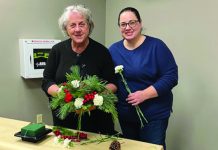I invite you to think about an issue with me. The issue surfaced for me when my father was ill for several years before dying in 1987. Again, when my mom died in 2000, and when my husband, Rex. died in February 2015. Within the last couple of weeks, renowned columnist George Will, wrote about…


